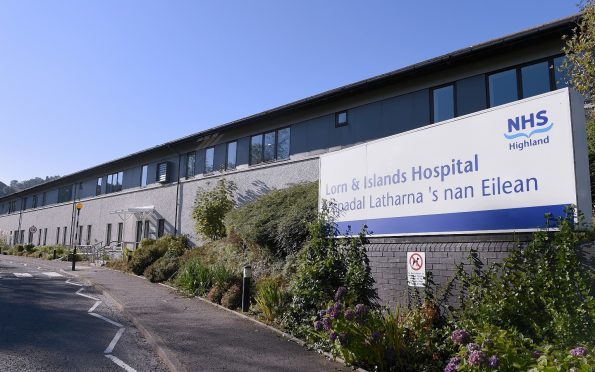A mother who twice went to a Highland hospital with vomiting was given an incorrect diagnosis and “unreasonably” discharged before being found to have cancer from which she ultimately died.
The Scottish Public Services Ombudsman (SPSO), in a highly critical report, has told NHS Highland bosses to apologise to the patient’s family.
The watchdog, in upholding a complaint made by the woman’s son over her treatment at Lorn and Islands Hospital on the outskirts of Oban in Argyll, also found there had been a delay in getting scans and inaccurate information was given to the family.
It has made a series of recommendations to prevent other families from suffering similar distress.
In their findings, SPSO said: “Mrs A [the patient] initially presented to the emergency department experiencing vomiting.
“Following assessment, Mrs A received antibiotics and was discharged home. Mrs A returned to the emergency department two days later again with vomiting symptoms.
“After further assessment was carried out, Mrs A was discharged home. Mrs A attended the hospital again approximately five days later and was admitted to a ward.
“During the admission, investigations were carried out which indicated that Mrs A had metastatic cancer (cancer that has spread to other parts of the body).
“Mrs A’s condition deteriorated during the admission and she died from her illness.”
The complaint regarded the care and treatment his mother received as well as the way hospital staff communicated with the family.
SPSO stated: “We took independent advice from a consultant in general medicine and a registered nurse.
“We found that Mrs A was unreasonably discharged from the emergency department on two occasions without her symptoms being effectively managed.
“We also found that an incorrect diagnosis had been reached during the first presentation to the emergency department, whilst the second presentation was poorly documented.
“We noted that once Mrs A was admitted to the ward, there was an unreasonable delay in obtaining a CT scan (a scan that uses x-rays to create detailed images of the inside of the body) of Mrs A’s chest/ abdomen. We upheld this aspect of [the] complaint.
“The board apologised that inaccurate information was given to family members regarding the length of time to obtain test results. We also found that there was a lack of discussion between nurses, doctors and the family around the possibility of discharging Mrs A home and a lack of clarity with the family about this.
“We upheld this aspect of [the] complaint.”
The family was also unhappy with the time that the board took to investigate and respond, and the watchdog again upheld this complaint, saying the delay was “unreasonable”, and adding: “We were critical of the board’s communication surrounding the delay.”
In its long list of recommendations, SPSO said: “The board should apologise for the unreasonable decisions to discharge Mrs A on two occasions; the incorrect diagnosis of urinary tract infection; poor documentation of Mrs A’s second hospital attendance; the unreasonable delay obtaining a chest/ abdomen CT; the lack of local multidisciplinary discussion around the possibility of discharge; and failing to provide a reason for the complaint handling delay and a revised timescale.”
The watchdog said various changes to care and diagnosis should be made “to put things right in future”.
A spokesman for NHS Highland said they were unable to make a comment.
